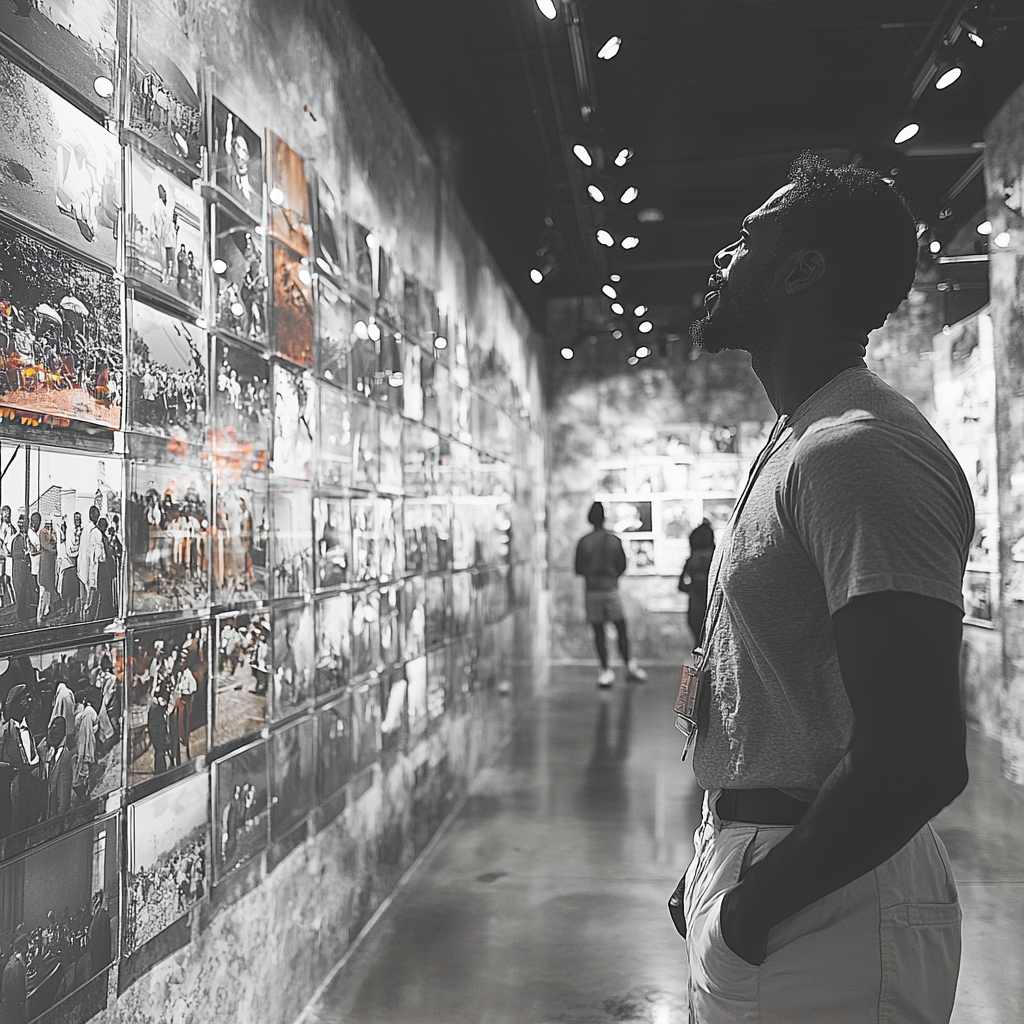Hey there, fellow travel fans! Grab your virtual suitcases as we journey to the beautiful city of Houston, Texas, to experience the Houston Museum of African American Culture – HMAC – a cultural goldmine for history enthusiasts, art lovers, and everyone curious about African American history and culture.
Our guide will help you navigate your excursion to HMAC, including a brief overview of the museum’s background, main and seasonal exhibitions, critical responses, and responses to frequently asked questions, such as photography permission and entry prices. Let’s explore African American history’s history, cultural artifacts, and more!
Current Weather in Houston, TX, USA

In this article
- Introducing the Houston Museum of African American Culture: A Past and Present of Honoring Black Brilliance
- The HMAC’s Treasures: Exploring the Exhibits of the Museum
- Planning Your Visit to the Houston Museum of African American Culture: Essential Information
- Where is the Houston Museum of African American Culture located?
- When is it open?
- What is the admission fee?
- Are guided tours available?
- Is photography permitted, and can I use a flash or a tripod?
- Is there a gift shop at Houston Museum of African American Culture?
- Is the Houston Museum of African American Culture accessible to individuals with disabilities?
- Does the HMAC have any special events or programs?
- Beyond the Exhibits: Engaging with the HMAC
- Houston’s roots: exploring the black cultural experience outside the museum
- A Final Note: The Significance of the Houston Museum of African American Culture
Introducing the Houston Museum of African American Culture: A Past and Present of Honoring Black Brilliance
The HMAC was founded in 1997 to maintain, record, and showcase the remarkable cultural history ingrained within African Americans.
When you enter the museum, you will take on an odyssey of African American triumph and pride encompassing centuries of accomplishment, ethics, solidarity, and hard work.
The HMAC uses its lasting collection, new exhibits, and informative initiatives to showcase the adversity and might of African American life.
The HMAC’s Treasures: Exploring the Exhibits of the Museum
Permanent exhibits
The HMAC treasures its permanent collection that creates a broad tapestry of African American culture. The exhibits cover:
- African roots: Learn about the history and customs of African civilizations that led to the development of African American culture in the Americas.
- The Slave Trade and Reconstruction – experience the cruel reality of slavery and the fight for freedom and equality during the Reconstruction.
- Jim Crow and the Civil Rights Movement – follow the story of African Americans subjected to Jim Crow laws and discover the brave struggle for civil rights.
- African American Achievements in Art, Science, and Literature – enjoy and admire the inventiveness and creativity of African American culture representatives in different fields.
Temporary exhibits
The HMAC is also proud to offer temporary exhibits focusing on particular themes, artists, or historical periods. As these displays rotate regularly, one can be sure that there is always something new to see, no matter how many times they have visited the museum.
PRO TIP
Visit the HMAC website before seeing current temporary exhibits and plan your trip better based on the topics that interest you.
Planning Your Visit to the Houston Museum of African American Culture: Essential Information
If you are feeling excited and eager to visit the HMAC, let me answer some essential questions to help you plan your visit:
Where is the Houston Museum of African American Culture located?
The HMAC is situated on Caroline Street, Houston, Texas 77004.
When is it open?
Its working hours are as follows: Wednesday, Friday, and Saturday from 11 a.m. to 6 p.m., Thursday from 11 a.m. to 8 p.m., and Sunday from noon to 5 p.m.
What is the admission fee?
The general public’s admission is $12, but many discounts are available for students, seniors, and military personnel. Children under 6 are admitted free of charge.
Are guided tours available?
The HMAC offers tours for all groups given by expert docents who can provide detailed information about the exhibits and explain the cultural background.
Is photography permitted, and can I use a flash or a tripod?
You can take as many photos as you like, but turn off your flash and tripod to prevent damage to the art.
Is there a gift shop at Houston Museum of African American Culture?
You will find a gift shop on site, offering books, art pieces, and unique souvenirs celebrating African American achievements.
Is the Houston Museum of African American Culture accessible to individuals with disabilities?
It is accessible by wheelchair and has ramps and elevators for all its rooms for comfortable access.
Does the HMAC have any special events or programs?
It hosts various events, including artists’ talks, workshops, film screenings, and performances. For upcoming events, check its website or social media pages.
Beyond the Exhibits: Engaging with the HMAC
There are many ways to interact with the HMAC beyond viewing exhibits. Here are some suggestions to get the most out of your visit:
Download the Museum App
Do you want more information about your favorite exhibits, audio guides for a hands-free visit, or extra materials on your phone? The HMAC app might make your experience more exciting!
Visit Educational Programs
The HMAC offers various educational programs, from interactive workshops for kids and teens to lectures and forums for adults.
The more you learn about each exhibit, the better you can stimulate your consciousness of African American people’s experience. Look at the museum’s website to see which exhibit is best for you.
Attend Special Events
The HMAC explores many special events every year.
Would you like to see a fun show, a movie, or an artist perform live? Would you like to see a dance performance?
The special events are all about falling in love with African American culture and becoming a part of the Houston community.
Follow the Houston Museum of African American Culture
The HMAC can be found on many social media platforms. Stay current on upcoming exhibits, special events, and other programming.
Exploring Houston’s Diverse Heritage: A Visit to the Houston Museum of African American Culture #HMACHouston #travel #outboundlynx Share on XHouston’s roots: exploring the black cultural experience outside the museum
Your exploration of Houston’s black culture does not have to stop at the HMAC. Here are some additional cultural experiences to further immerse yourself in the African American narrative:
- The Buffalo Soldiers National Museum is a deep dive into the story of the African American regiments formed after the Civil War. It celebrates the story of brave young men who fought for freedom and equality.
- The Third Ward: a walk down this once-thriving African American neighborhood. Emancipation Park, a historical monument, art galleries, and restaurants can be visited while there.
- The Alley Theatre: Catch a play at the renowned theater, which upholds diversity and inclusion and often stages productions relatable to the African American experience.
- The Houston Black Film Festival: immerse yourself in African American cinema and watch independent films and short stories by black filmmakers. An annual festival that appreciates the African American creative mind.
A Final Note: The Significance of the Houston Museum of African American Culture
Not just a museum – it’s a gathering place for like-minded individuals passionate about arts and history representing African American cultural heritage imbibed with inspiration. What you will learn about:
- Origins and most recent victories and struggles by African Americans.
- Visiting advanced exhibitions of Black artists, physicists, and writers who passioned the world.
- Connect with the Houston African American community and our extensions on Facebook.
Next time you are on your journey to Houston, be sure to take advantage of your visit to HMAC. For those who want to learn and be more inspired by African American art, culture, and history, the museum is a perfect place to go.
We believe this blog post can be an invaluable guide for visitors to the Houston Museum of African American Culture.




